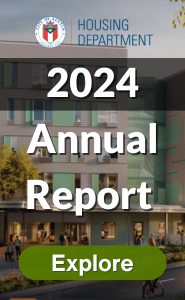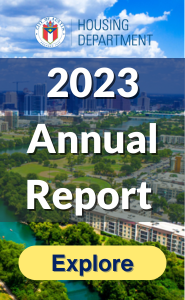Homestead Preservation Districts (HPDs) are districts whose purpose is to help municipalities promote affordable homeownership and prevent the involuntary loss of homesteads for low- and moderate-income households.
Homestead Preservation Reinvestment Zones are a type of Tax Increment Reinvestment Zone or Tax Increment Financing model, which can be set up under the Homestead Preservation District law (Web) to ensure property tax dollars from economic development are reinvested in affordability for that area. Once established, HPDs permit the use of three regulatory mechanisms to achieve the purposes of the district, which include Homestead Preservation Reinvestment Zones (HPRZs), Homestead Land Trusts, and Homestead Land Banks.
The City of Austin has one HPD in East Austin, which was established by City Council in 2007. Even though the City considered adding others, Austin was unable to meet the state criteria to establish new HPDs between 2010 and 2023. Legislation that would have allowed Austin to continue to qualify for the creation of new HPDs was vetoed by Governor Abbott in 2017. In 2023, House Bill 4559 updated population and housing unit brackets, making Austin eligible to create new HPDs. The City of Austin staff is currently exploring the possibility of establishing new HPDs based on the 2023 legislative update.
Homestead Land Trusts
A city or county may designate one or more Homestead Land Trusts to operate within Homestead Preservation Districts. These trusts are organized as non-profit corporations that can acquire and hold land to develop and preserve long-term affordable housing within the district. These trusts may own land and either lease or sell affordable housing units located on the land. This removes the cost of land from the purchase price of a home and ensures that any homeowner purchasing the home will only pay taxes on the building and not the land itself.
A homestead land trust operating in an HPD must lease or sell housing units to households at or below 70 percent Median Family Income (MFI) with at least 40 percent of housing units leased or sold to households at or below 50 percent MFI, and 10 percent of housing units leased or sold to households at or below 30 percent MFI.
Homestead Land Banks
A city may adopt a Homestead Land Bank program to operate within Homestead Preservation Districts, which allows the city to purchase and hold land for the purpose of creating affordable housing within the district. Additionally, property subject to tax foreclosure and meeting specific criteria may be sold to a Homestead Land Bank.
Homestead Land Bank may sell land held in a land bank to a qualifying developer for the purpose of developing affordable housing. The land bank imposes deed restrictions on the land, requiring the developer to sell or rent the housing units to low-income households. All homes must be sold to households at or below 80 percent MFI, with at least 25 percent of housing units sold to households earning at or below 60 percent MFI.
Land sold to a developer for the development of rental housing units must be deed-restricted and rented to households earning no more than 60 percent MFI for at least 20 years. At least 40 percent of rental housing units must be rented to households earning no more than 50 percent MFI, and at least 20 percent of rental housing units must be leased to households earning no more than 30 percent MFI.



